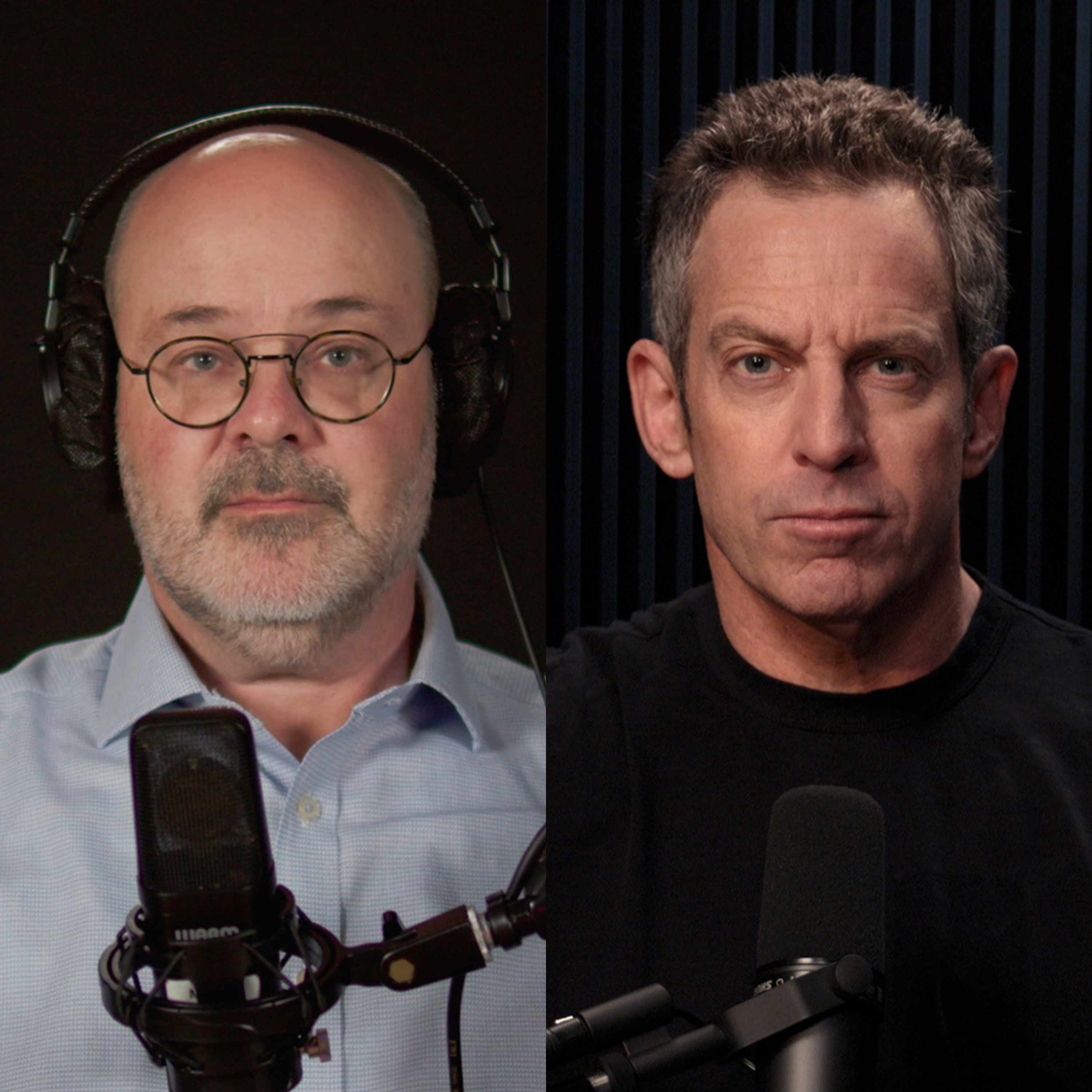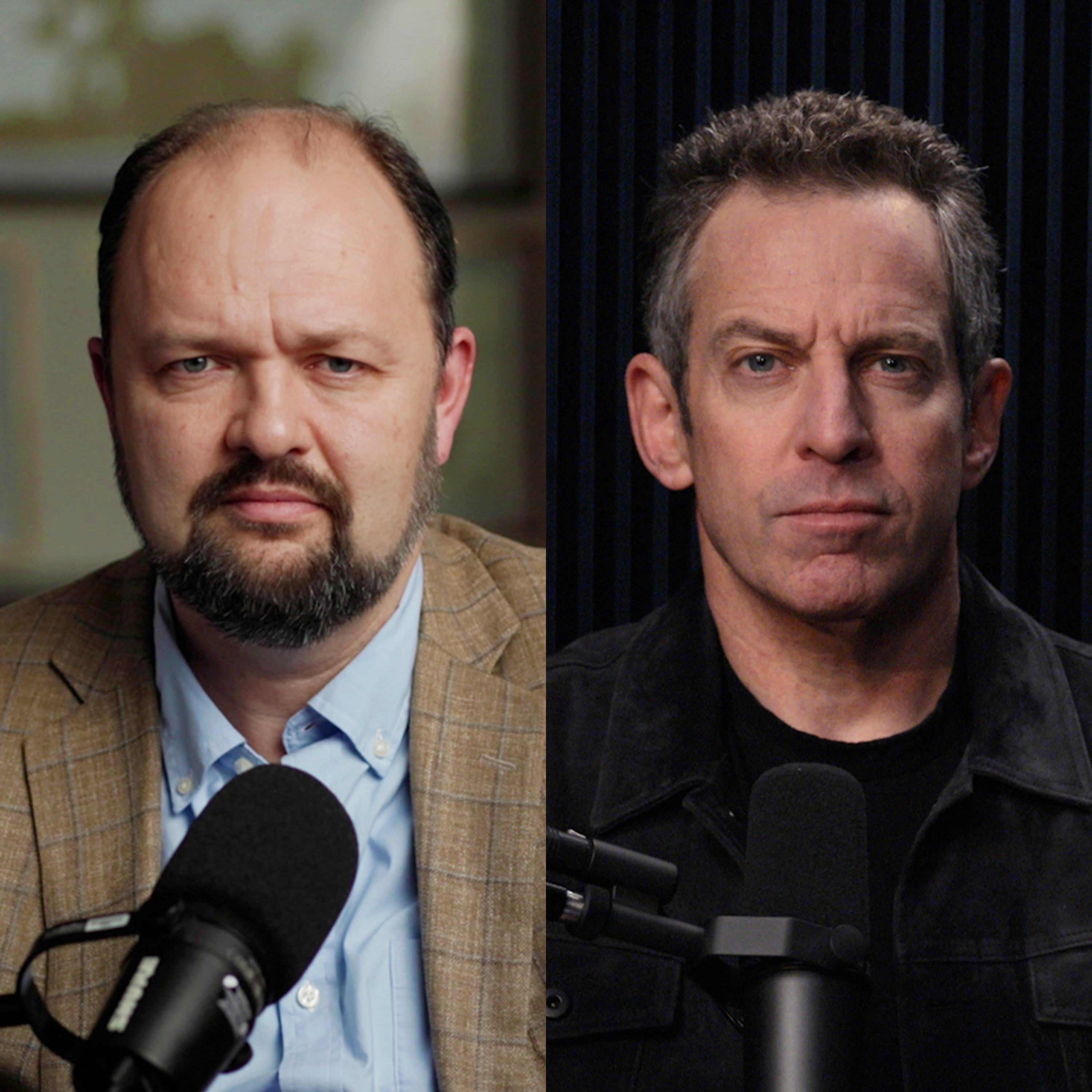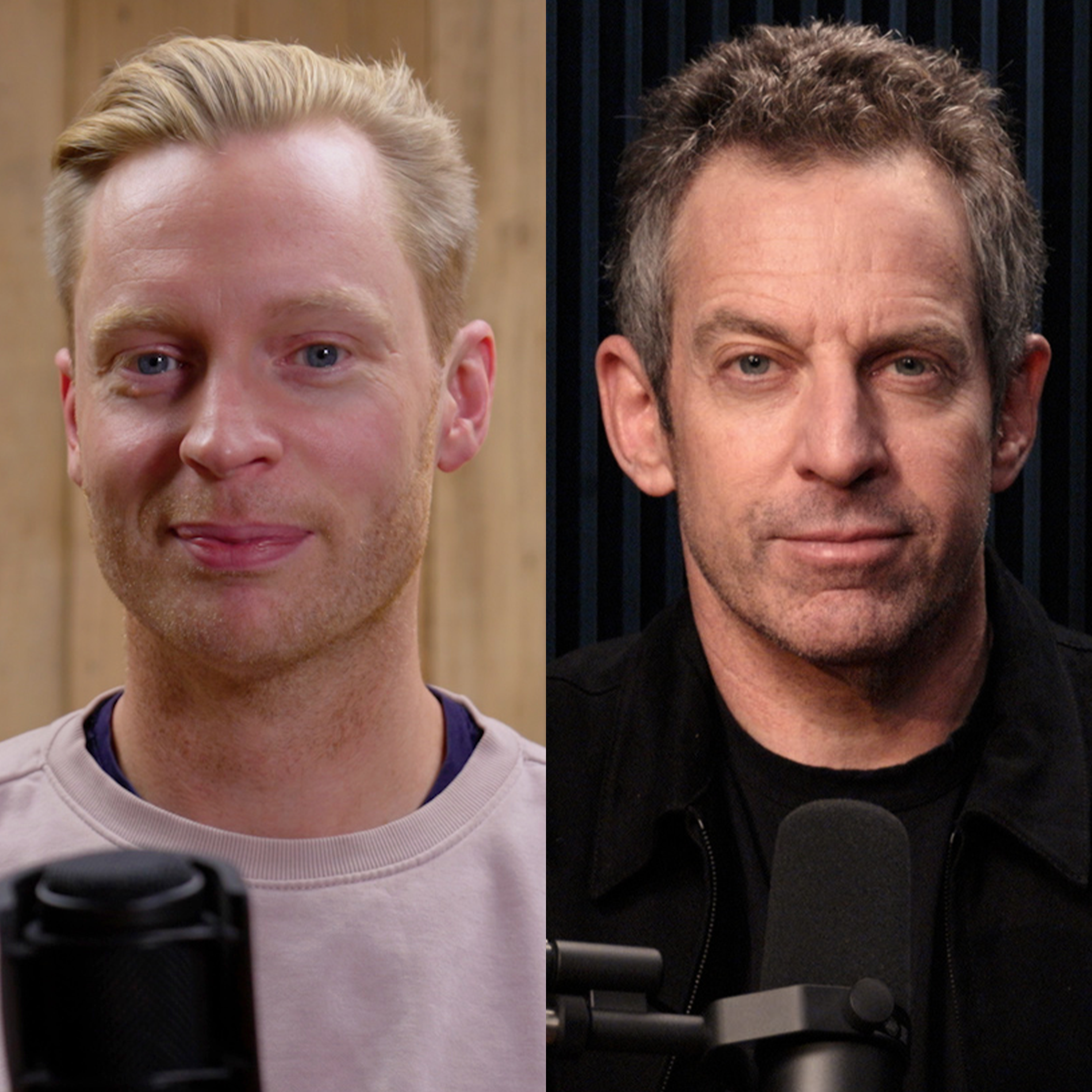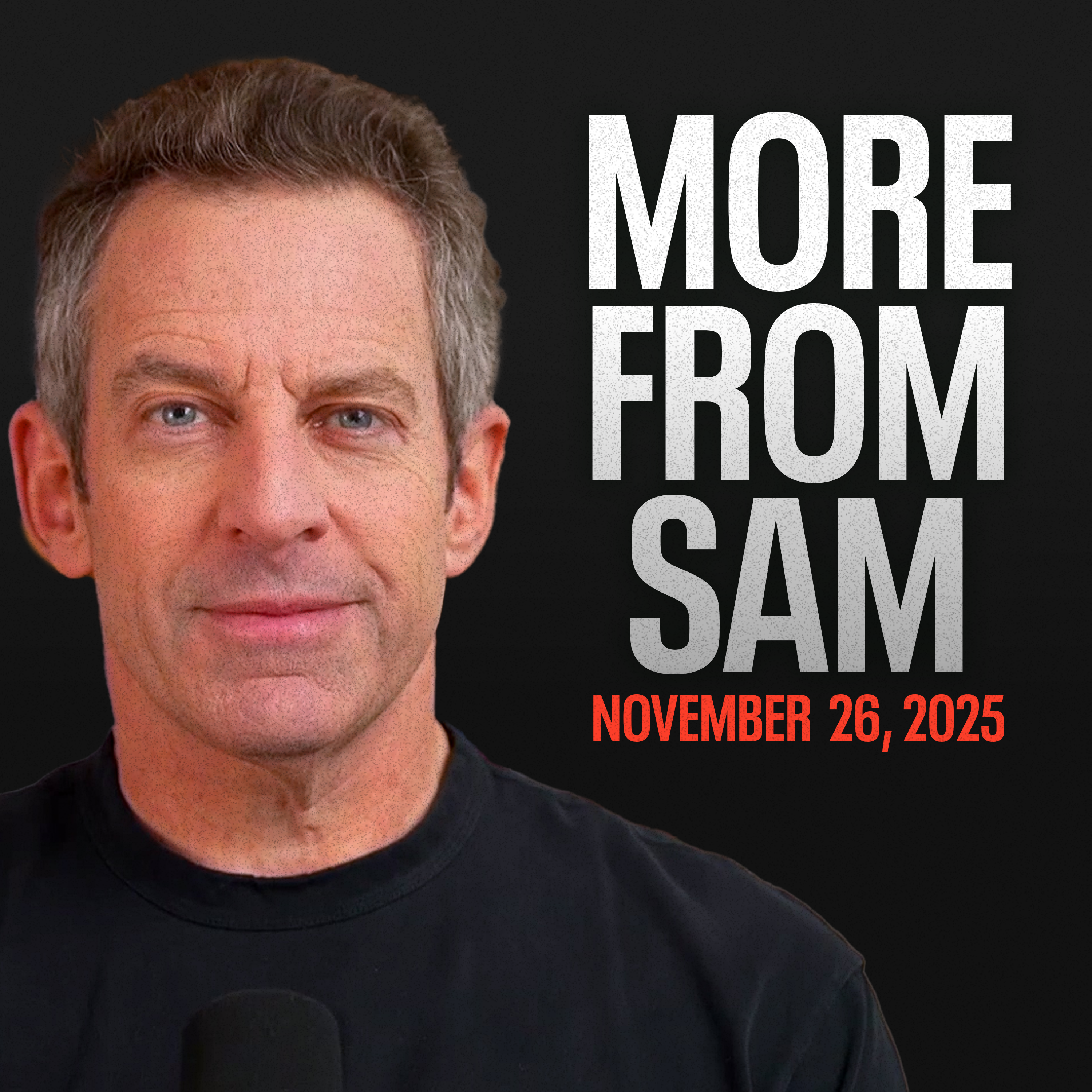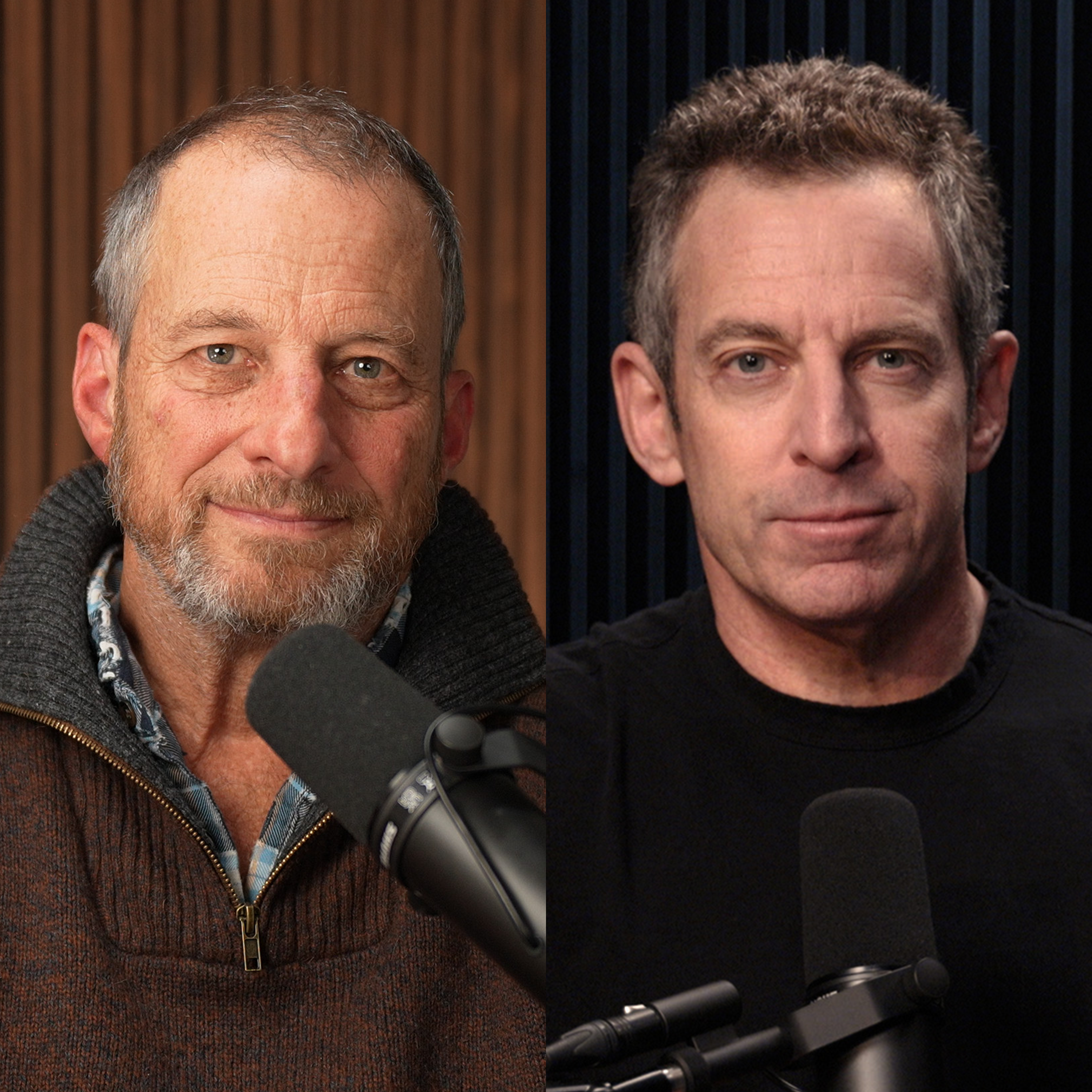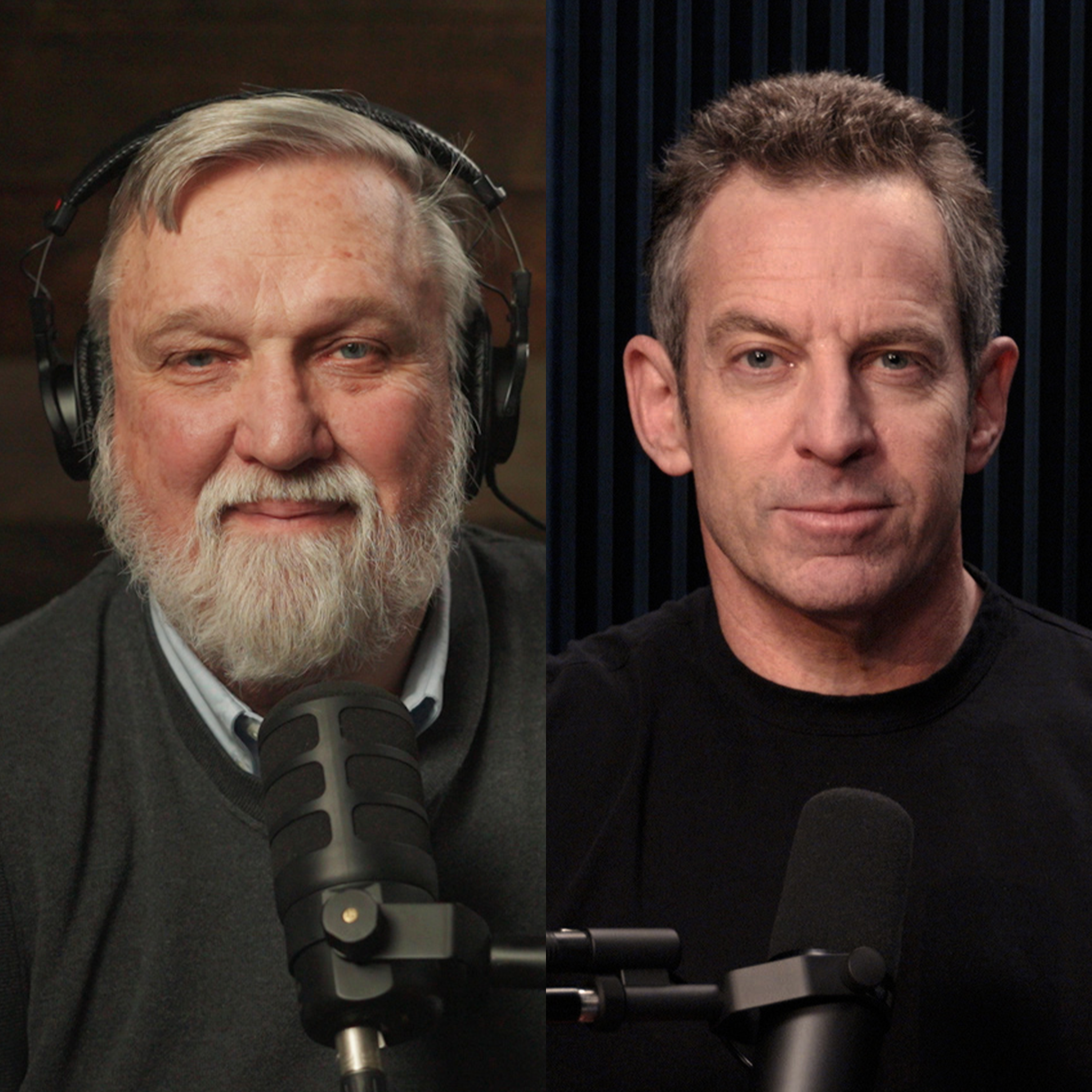#439 — How to Lose a Democracy
Sam Harris speaks with Damon Linker about the erosion of American democracy. They discuss the right-wing populist movement, the mechanisms by which Trump is consolidating authoritarian control, the Insurrection Act, the Right’s weaponization of wokeness, the potential for civil unrest, Trump’s punishment of Democrat-run cities, the new Christian Right, and other topics.
If the Making Sense podcast logo in your player is BLACK, you can SUBSCRIBE to gain access to all full-length episodes at samharris.org/subscribe.
Press play and read along
Transcript
Speaker 1 Welcome to the Making Sense Podcast. This is Sam Harris.
Speaker 1 Just a note to say that if you're hearing this, you're not currently on our subscriber feed, and we'll only be hearing the first part of this conversation.
Speaker 1 In order to access full episodes of the Making Sense Podcast, you'll need to subscribe at samharris.org.
Speaker 1 We don't run ads on the podcast, and therefore it's made possible entirely through the support of our subscribers. So if you enjoy what we're doing here, please consider becoming one.
Speaker 1 I'm here with Damon Linker. Damon, thanks for joining me.
Speaker 2 Thanks for having me, Sam. It's great to be here.
Speaker 1 So
Speaker 1 many people will be familiar with your writing, but remind people of what you've been up to, Low, these many years as a writer and a political commentator and where they can find your stuff currently.
Speaker 2 Well,
Speaker 2 it seems like everyone these days, I have a sub stack titled Notes from the Middle Ground.
Speaker 2 And then I also teach political science at the University of Pennsylvania as a senior lecturer there. And I mainly teach courses in political theory and the political right.
Speaker 1 Well, we're going to get into the political right and the theory or lack of theory that may apply to the current moment. And how would you describe your politics at this point?
Speaker 2
You know, for the last decade or so, I've described myself as being a liberal on the center left. I used to be a conservative about 20 to 25 years ago.
I was
Speaker 2 an editor at First Things magazine, which Andrew Sullivan once called the intellectual nerve center of the religious right.
Speaker 2 And so I spent some time in the midst of that during the Bush administration and became frustrated with some of the Bush policies, the Iraq war, opposition to same-sex marriage.
Speaker 2 And so broke from that, wrote a book about it called The Theocons.
Speaker 2 And since then, I've been on the broad center left with the emphasis mainly on center.
Speaker 2 I'm really not that far to the left, but I do incline that way, mostly out of aversion to what the right has become.
Speaker 2 Although that's kind of amusing because that break, as I just said, was initiated under Bush. And now I look back at the Bush administration and it seems like the good old days.
Speaker 1
Oh, yeah. Yeah.
As do I. I don't think we've ever crossed paths, but I seem to remember you having some critical things to say about the new atheists.
Speaker 1 I don't know if those same criticisms still apply, and perhaps we'll get to some areas of disagreement.
Speaker 1 But when I look at your writing now, certainly on the topic of politics, you know, you and I are more or less in lockstep in how we view the current moment.
Speaker 2
That sounds about right. I would expect that.
Everything I've heard of you and your podcast and other media appearances, I think were pretty simpatico.
Speaker 2 Yeah, I mean, I was critical of some of the new atheist writings at the time.
Speaker 2 That whole wave seems to have kind of dissipated and moved on to, well, we're talking about other things now. So it almost feels like ancient history.
Speaker 2 My second book called The Religious Test does have an essay in it that's critical of the new atheists. And you are in there along with your colleagues,
Speaker 2 the late Christopher Hitchens and, you know, the others, the
Speaker 2 four horsemen of the apocalypse.
Speaker 1 Well, maybe we'll get there.
Speaker 1 You know, both of us talk about our worries at this point, perhaps ad nauseum.
Speaker 1 I wouldn't like it ever to be accurately said of me that I'm an alarmist around the changes that seem to be happening in our democracy. And I wouldn't want it said of you either in this context.
Speaker 1 So I would like us to, as a posture, to be as circumspect and
Speaker 1 sober as we can be, but I also don't want us to shy away from honestly analyzing what we think is happening here.
Speaker 1 So with that as a, you know, my effort to lead the witness, what can you say about the current state of American democracy from your point of view?
Speaker 2 Well,
Speaker 2 I certainly agree with the way you've framed that. That's sort of my brand at my sub stack is to be sober and and clear-eyed, honest about how things are going, and also not to...
Speaker 2 I don't really believe in pep talks, in trying to portray things as better than they are in order to buck up my own side.
Speaker 2 I think it's much better for liberals to stare resolutely at those who wish to do us harm and assess what it is they hate about us and what they want to do to us and in place of us if they firmly depose us.
Speaker 2 And only in doing that can we formulate a kind of coherent and reasonable response.
Speaker 2 The way it looks to me now, I have gone back and forth over the last, say, half decade to full decade, basically since Trump first you know, descended the escalator and began his first campaign.
Speaker 2 I've gone back and forth between fearing what a lot of people on the center left fear, which is a kind of dictatorship under this man who appears to have what I call a tyrannical soul, if you will, someone who longs to be a strong man and vanquish his enemies and punish those who do him any wrong, which he defines very broadly.
Speaker 2 So sometimes I worry about that, but at other times I worry about an alternative bad case scenario that intertwines with it in a kind of ominous way, and that is the United States spiraling into civil unrest.
Speaker 2 I'm hesitant to use the word civil war or the phrase civil war, which we hear so much of these days, unless we define precisely what we mean. I do not anticipate.
Speaker 2 a new Antietam and Gettysburg and armies lining up against each other on battlefields and firing guns at each other, but other examples throughout history, like the Troubles in Northern Ireland, the years of lead in Italy, a kind of spiraling of tit-for-tat violence by radicals on both the far left and the far right, which, if left to their own devices, could devolve into a kind of
Speaker 2 ongoing chaos in which the economy can't really function well and day-to-day violence in our lives with bombings and shootings becoming so great that kind of public spaces become kind of emptied out as people try to just stay in their homes to avoid that violence.
Speaker 2 That's bad enough, but the way in which these two options intersect with each other is, I think, what alarms me most about the present moment with the present being defined as the fall of 2025, because it does evolve over time, is the way that Trump and his most malign allies in the administration, foremost among them being Stephen Miller, the
Speaker 2 deputy White House chief of staff and senior advisor to the president, that they seem very eager to be given a pretext.
Speaker 2 to clamp down on political dissent in a more radical way.
Speaker 2 And they are using any sign of violence by anyone who can be described as on the left as that pretext. And of course, the Charlie Kirk assassination was the biggest of these opportunities for them.
Speaker 2 They haven't thankfully moved, say, to invoke the Insurrection Act, which we can maybe talk a little bit more about later. in response to that assassination.
Speaker 2 But you now have Trump in the last couple of days actually invoking that act in his own name as something he's contemplating.
Speaker 2 He and Miller desperately want Portland to be burning to the ground so that they can use that as a pretext. They want Chicago to spiral with attacks on ICE officers by
Speaker 2 people on the street, which then
Speaker 2 the military can be sent in to defend the ICE officers. And then
Speaker 2 the administration would then hope that the left attacks the soldiers and that this would
Speaker 2 intensify support for, again, a more militaristic power grab. It's really scary stuff.
Speaker 2 And so what do I fear most is exactly what I've just been describing, the both of them interacting with each other.
Speaker 1 Okay, so I want you to prop up that dystopian vision as fully as you can. I want you to walk me through what would happen between now and then to make those increments seem plausible.
Speaker 1 But what would you say to someone who thinks that the last few minutes of your utterances was just a lurch into the very
Speaker 1 alarmism I disavowed?
Speaker 1 What would you say to someone right of center who thinks that nothing really out of the ordinary is happening except for the fact that we finally have an administration who is willing to take the crime problem in these democratically mismanaged cities seriously.
Speaker 1 So all Trump wants to do is, first of all, he's implementing the very immigration policy that he ran on.
Speaker 1 And in truth, he, I don't know where the numbers stand now, but last I heard, he hadn't deported many more or even as many people as Obama had in his, one of his terms.
Speaker 1
You can correct me if I'm wrong there. But I mean, it's like the number of deportations have not been astronomical.
There's just been a lot of noise around them.
Speaker 1 And the number, you know, the numbers aside, he promised to do this and now he's doing it and half of America clearly wants him to do it.
Speaker 1 And everything else, bringing in the National Guard or even the 82nd Airborne into a place like Chicago is just a response to an ambient level of violence there that every American should find intolerable.
Speaker 1 And he's not doing anything tyrannical. He's just restoring order, the order that most people in their heart of hearts would really want.
Speaker 1 And basically everything you just said is some species of left-wing paranoia.
Speaker 2 Well, yeah, that's a great way to set it up.
Speaker 2 And it, because it, you know, it shows that the challenge of trying to hew to the center, because there's a lot of truth in what you just said as a kind of hypothetical rebuttal to what I said.
Speaker 2 So, for example, I think it is true that Biden very badly mismanaged immigration.
Speaker 2 It's not even clear exactly why, if this was coming from the president himself or senior advisors who simply took over for him when he was relatively incapacitated and not attending to that, maybe distracted by Ukraine and other things going on in the world.
Speaker 2 And so he handed it off to advisors and let them handle it, whatever the cause, it was not handled well. There was a kind kind of reflexive sense, I think,
Speaker 2 among a lot of Democrats that Trump had been already pretty tyrannical about immigration because of the child separation policy and the Muslim ban and so forth in the first administration.
Speaker 2 And that therefore, once Democrats were back in charge, it was important to reverse course.
Speaker 2 to stop relying on COVID era restrictions about letting people come in the country and wait out their hearing on this side of the border, when in reality, many of them can simply sort of disappear into the woodwork of our enormous country and so forth.
Speaker 2 So if that's what you're saying, that all Trump is trying to do is kind of reinstitute the rule of law after a period where it was insufficiently defended, there is some truth to that.
Speaker 2 And there is some truth to the fact that he won the election and a lot of people who voted for him felt strongly about that issue. Where I would push back is in
Speaker 2 saying,
Speaker 2 what is so alarming about the way Trump is handling immigration is the way it's being imposed. As you note, it's true.
Speaker 2 If you look back at the number of people who were deported or sent back at the border under Presidents Clinton, under President Bush, under President Obama, and then compare that to either the first Trump administration or now, it appears that Trump isn't doing all that much.
Speaker 2 There were something like 10 million people returned or again, either at the border or within internal deportations under those other presidents.
Speaker 2 A little bit less under Obama, but still way more than Trump.
Speaker 2 But those presidents did not send in ICE officers with their faces masked, with no badges visible, to raid employers, detain people without proper charges, quite often people who, in fact, are not here illegally, but are legal immigrants with green cards or even
Speaker 2 American citizens.
Speaker 2 And it's this sort of haphazard, kind of over-the-top displays of aggression and violence and seeming lawlessness by officers of the federal government that has people extremely alarmed.
Speaker 2 Again, almost as if what Trump wants to do is have a kind of camera-ready show of force for his most right-wing supporters and kind of winkingly to those supporters, hoping that that provokes a reaction from the left.
Speaker 2
that will then justify it retrospectively and justify him doing even more in that direction. And that, that is bad.
Now, on the broader question of crime, I also am in the middle.
Speaker 2 I am all in favor of prosecuting crimes, keeping our cities safe or making them safe if they aren't.
Speaker 2 I've written critical things about the way a lot of democratically led so-called blue cities handle homelessness and crime in various ways. That isn't something that I want to defend.
Speaker 2 And I think Democrats often have walked themselves into political weakness by responding the way they do to these issues.
Speaker 2 The problem once again is that within my lifetime, at a time when, say, I lived in New York in the early 1990s, New York City had over 2,000 murders per year.
Speaker 2 It's now something on the order of 10 to 20% of that. Other cities, even those like my own Philadelphia that have higher rates of violence,
Speaker 2 it is still lower than it used to be. And then again, with like Portland, did Portland have
Speaker 2 a big problem around four to five years ago through 2020 with Antifa and protesters, clashes with the police, areas of the city that were kind of occupied by left-wing vandals? Yeah.
Speaker 2 But that was four to five years ago. That is a very minimal problem now.
Speaker 2 And there's no real precipitating cause that would justify treating this as some kind of national emergency in the present moment.
Speaker 2 And it is, it is, to my mind, a kind of, a kind of tell that the administration is attempting to do that in a way that involves, I think, little more evidence than often telling a story.
Speaker 2 If you look at Stephen Miller's posts or tweets on what used to be called Twitter and now X, you will see that he's just telling a story in which we live in a country in which there is an organized wave of left-wing terrorism going on.
Speaker 2 And that is just simply delusional. That is not true.
Speaker 2 Our country did have a problem of organized left-wing terrorism in the early 70s, when in a period between 1971 and 1973, there were something like 500 terrorist bombings.
Speaker 2 They didn't kill that many people, but they blew up banks, post offices, other public areas often at night.
Speaker 2 There's really nothing remotely like that going on now.
Speaker 2 And simply saying that it is doesn't make it true.
Speaker 2 So I would just urge the Trump administration and supporters, as well as those on the left who are spoiling for a fight with ICE and so forth, to just kind of rein it in a little bit and
Speaker 2 recommit to looking at the reality-based community and treating reality as a thing that everyone should be able to agree on certain basic facts about.
Speaker 2 And I'm disheartened by how little sign there is that, especially the right wants to do that.
Speaker 2 The left has its problems and does some of that, but it is also the case that even with all of the ICE provocations, the raids, the masking, the lack of badges, you know, grabbing people off the street and manhandling them, throwing them into unmarked cars and driving off with them.
Speaker 2 With all of that, we really haven't seen widespread left-wing violence, riots, and so forth, like we did, for instance, in the summer of 2020 with, I think, far less provocation.
Speaker 2 You know, I mean, in the sense, of course, I think the George Floyd killing was terrible. and worth some protests, but
Speaker 2 this is a systematic act of the federal government government with the president leading the way
Speaker 2 with very incendiary rhetoric.
Speaker 2 So given that fact, I think actually the left has been remarkably restrained, not in the sense that I'm saying like they should be doing more and more violent things, but simply I might have expected them to be more violent given the recent history of how the left has occasionally behaved in the face of other provocations.
Speaker 2 Yeah.
Speaker 1
Well, I mean, the rhetoric has certainly been appalling. I mean, everything out of Stephen Miller's mouth suggests that he's vying for some kind of banality of evil award.
I mean,
Speaker 1 he's just so clearly an awful human being in addition to everything else that is wrong with his politics.
Speaker 1 And I do think that the lack of civility and the indulgence of conspiracy thinking, all of this is just frankly dangerous, right? It's not just words. It really is raising.
Speaker 1 the temperature in ways that are dangerous and it's making certain terrible outcomes far more likely, as well as just attesting to the callousness and delusion of the people in power, right?
Speaker 1 So it's all terrible. And yet many people will say, well, these are just words, right? You should be taking him seriously, not literally.
Speaker 1 And so it goes for every one of his courtiers and concubines and enablers. What Trump has done to our politics has scared a lot of people left of center, but it really
Speaker 1 is not on a continuum with, now again, I'm just bending over backwards to be charitable to people who disagree with us.
Speaker 1 It's not on any kind of continuum with what we mean by authoritarianism, much less fascism. This is a reality TV show, right? This is all
Speaker 1 theater on some level. Not much really is at stake.
Speaker 1 They're creating a vibe. And yes, it's understandable that people left of center are alarmed.
Speaker 1 But these are not the sorts of people who are ever going to put people up against against the wall and shoot them.
Speaker 1 What everything that is being that, you know, alarmists like, and again, I'm being ventriloquized here, alarmists like Timothy Snyder and Ann Applebaum and all these people, the scholars of totalitarianism and the unraveling of democracy, all these people are hysterics and they're drawing bad analogies to other cases.
Speaker 1 What we have here is somebody who's
Speaker 1 just has a very different style, right? And so, and the masking of ICE, that even has its own exculpatory explanation.
Speaker 1 These guys are being doxxed online, and this is a new moment where social media is posing a real risk to law enforcement. So they have to be masked.
Speaker 1 And yeah, if they're a little rough around the edges, well, you know, these people are here illegally.
Speaker 1 You know, if you don't want the laws enforced, you shouldn't have these laws in the first place, right?
Speaker 1
Everyone's guilty of a crime who's here illegally. It doesn't matter how long they've been here.
It doesn't matter how profitably they've been working in necessary industries.
Speaker 1 Again, we have laws on the books and now we're enforcing them. So what is clearly wrong with that level of insutience around the current situation?
Speaker 2 Well, I would say that liberal democracy as a form of government, it's a form of government where money matters.
Speaker 1 If you'd like to continue listening to this conversation, you'll need to subscribe at samharris.org. Once you do, you'll get access to all full-length episodes of the Making Sense podcast.
Speaker 1 The Making Sense podcast is ad-free and relies entirely on listener support. And you can subscribe now at samharris.org.
